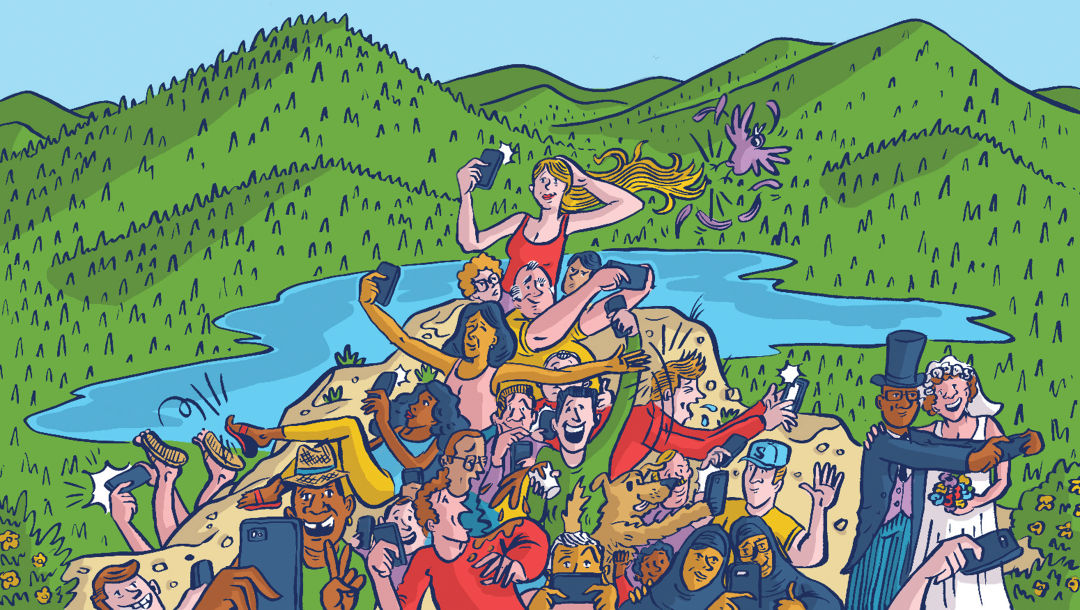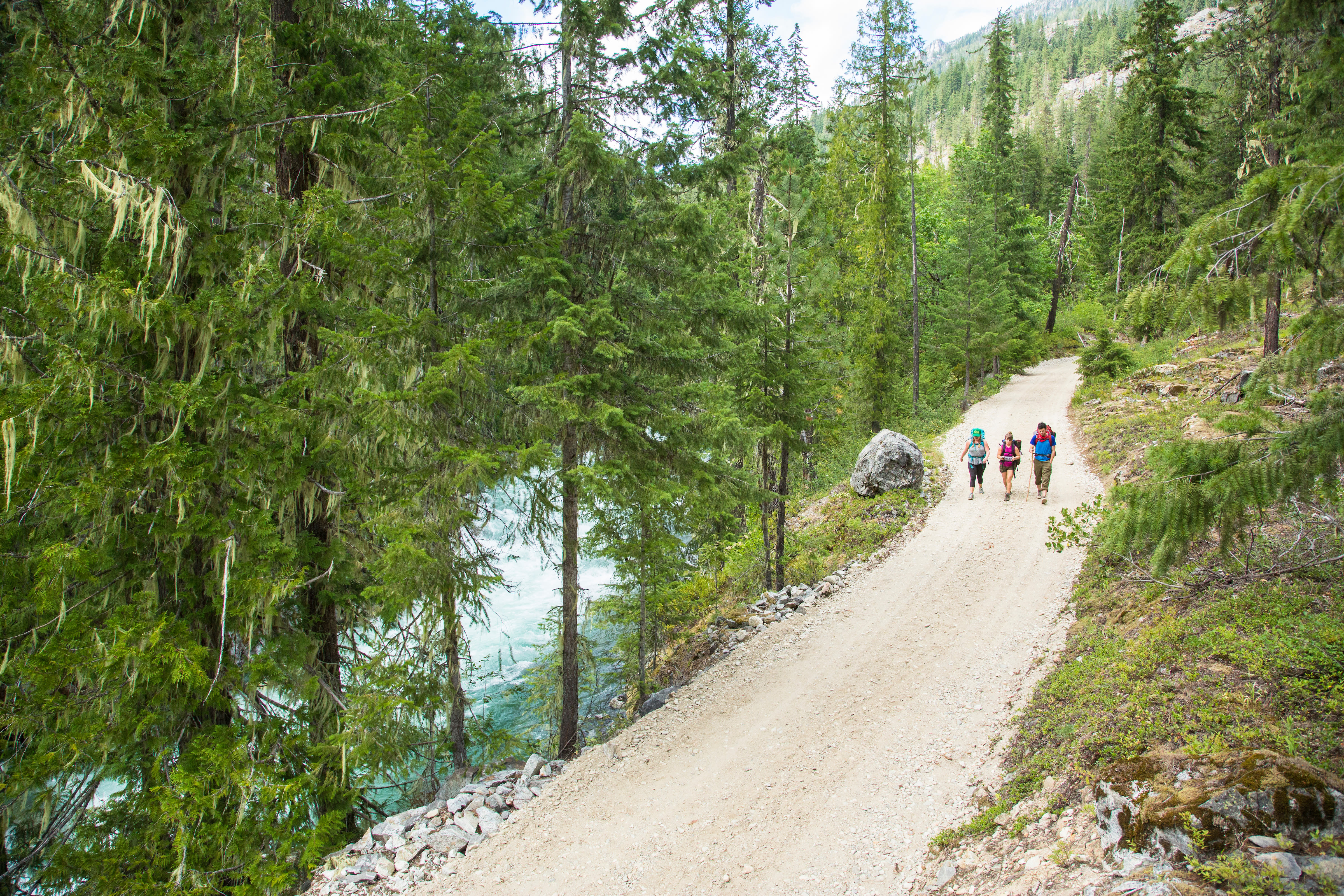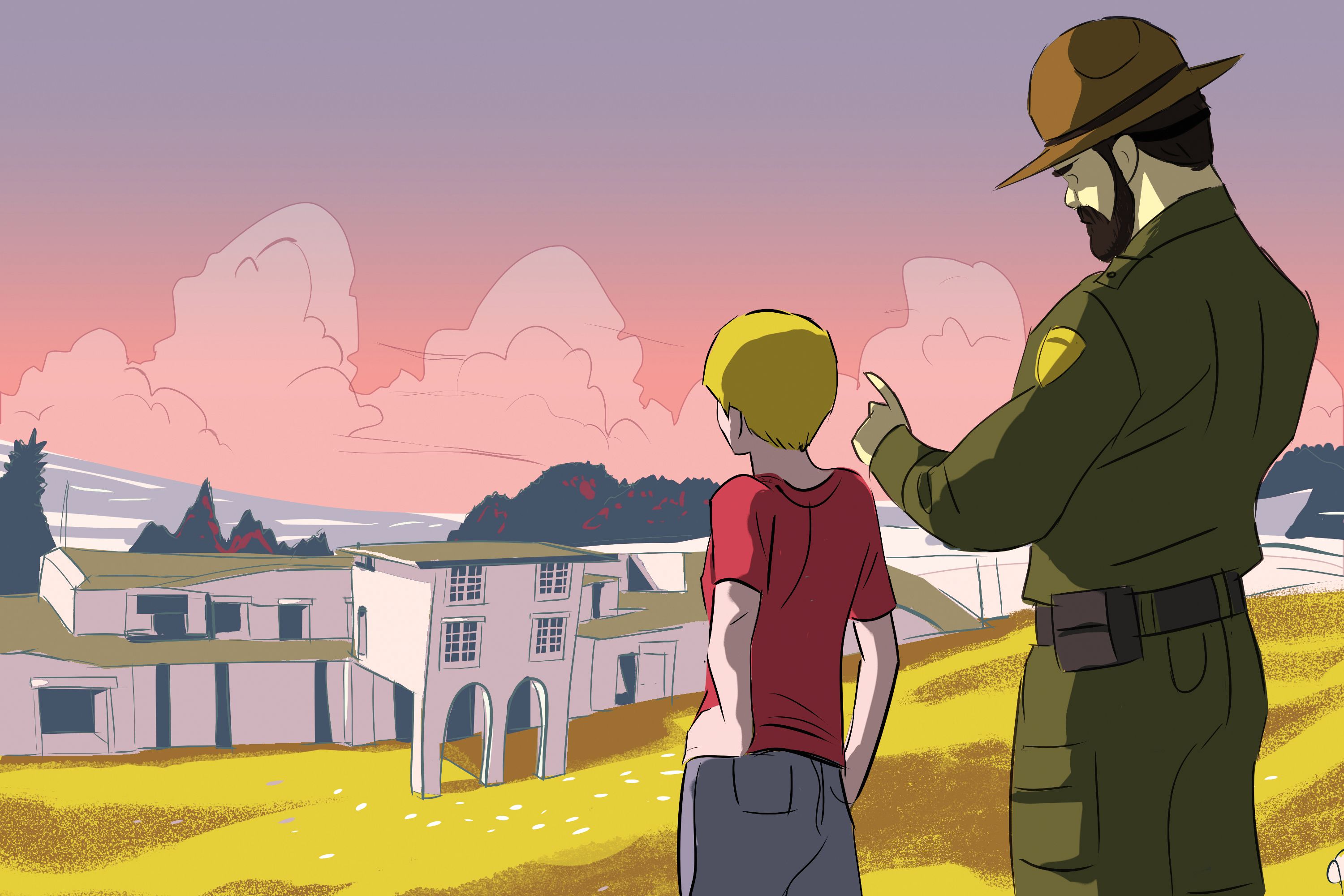How Instagram Has Changed Outdoor Spaces

Image: Dom McKenzie
After a romantic photo of a couple embracing in front of a partially frozen waterfall in North Bend made the rounds on social media in December 2016, inexperienced hikers dead-set on capturing their own enchanting waterfall selfies wandered into the wilderness without proper footwear or flashlights. Finding themselves lost after dark, many suffered serious injuries. In a single month, the all-volunteer King County Search and Rescue team responded to 30 calls from Franklin Falls.
“People see beautiful photos on social media, but don’t do the additional research to find out it’s a difficult hike and bring what they need to be prepared,” says the Search and Rescue team’s detective Ed Christian. “They’re getting in way over their heads.” In other words, if you’re just doing it for the ‘gram, you probably shouldn’t be doing it.
The rescue team responded to 214 calls for help in 2017. That’s double the number received eight years prior.
And according to Christian, the increase in accidents is directly related to a surge in hikers posting on social media.
“People want to portray themselves as adventurous and spontaneous,” says Erin Vogel, a postdoc at the University of California at San Francisco studying social media and well-being. “It’s something that is highly valued, so hiking out to these places and doing dangerous things is one way to do that.”
Beyond the safety hazards, experiencing nature with social media sharing in mind can have a psychological impact. As we’re trying to commune with nature and get away from it all, why do we still feel the need to be posting our every step?
“When we get affirmation for the image of ourselves that we build online, it helps convince us that the image is real,” says Dr. Elias Aboujaoude, clinical professor of psychiatry and behavioral sciences at Stanford University and author of Virtually You: The Dangerous Powers of the E-Personality. “But this is not sustainable. At some point you are going to be reminded of your life as you truly live it and if there is a big gap between your real life and what you’re projecting, that can be a very destabilizing realization.”
Dr. Aboujaoude encourages people to ask themselves if they are motivated by a genuine desire to unplug and escape from the stressors of everyday life or an overpowering need to get likes. “People talk about the fear of missing out. To me, missing out on being able to live in the moment is the biggest missing out experience of them all.”
In other words, maybe—just maybe—that obligatory #PNWhiking selfie isn’t so obligatory after all.




